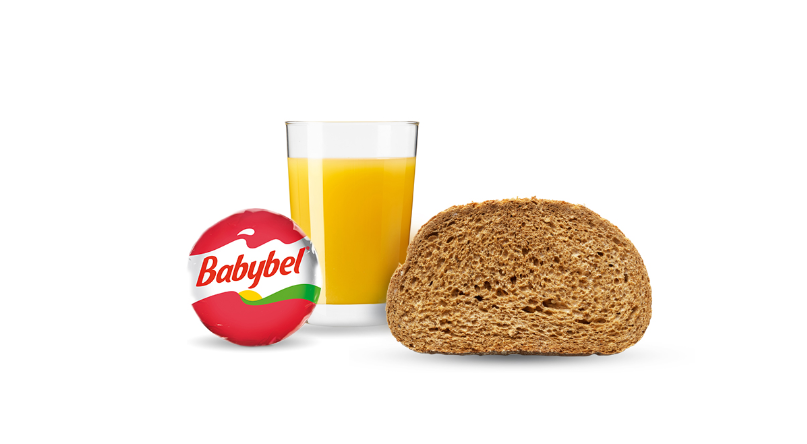Are Babybel Healthy?

In recent years, snacking has evolved, and consumers are increasingly conscious of what they eat. Among the myriad of snack options, Babybel cheese has carved out a niche for itself, often marketed as a convenient and fun cheese choice. But the question remains: Are Babybel healthy? This article explores the nutritional profile, benefits, and potential drawbacks of Babybel cheese, providing a comprehensive understanding of its role in a balanced diet.
Quick Info Table
| Nutritional Aspect | Value (per cheese) |
|---|---|
| Calories | 70 |
| Total Fat | 6g |
| Saturated Fat | 4g |
| Protein | 5g |
| Carbohydrates | 1g |
| Calcium | 15% of Daily Value (DV) |
| Sugar | 0g |
Understanding Babybel Cheese
Babybel cheese is a brand of small, round cheese wheels that are coated in colorful wax. Originally developed in France in the 1950s, Babybel has become a popular snack in many countries. The cheese is typically made from cow's milk and is available in various flavors, including original, light, and gouda.
Nutritional Profile
One of the most significant aspects of any food item is its nutritional value. A standard serving of Babybel cheese contains approximately 70 calories, 6 grams of fat, and 5 grams of protein. Given its creamy texture and flavor, Babybel offers a decent source of protein, which is essential for muscle repair and overall health.
Moreover, Babybel cheese is a source of calcium, providing about 15% of the daily recommended intake in just one piece. Calcium is crucial for maintaining strong bones and teeth, making Babybel a potentially beneficial snack for individuals looking to boost their calcium intake.
Benefits of Babybel Cheese
1. Portability and Convenience
One of the standout features of Babybel cheese is its convenience. The individually wrapped wheels make them easy to pack for lunches, picnics, or on-the-go snacking. This portability encourages healthier snacking habits, as it eliminates the need to resort to less nutritious options when hunger strikes.
2. Balanced Macronutrients
Babybel cheese strikes a balance in its macronutrient profile. With a good amount of protein and fat, it can help keep you feeling full for longer. This satiety can reduce the likelihood of reaching for additional snacks, potentially aiding in weight management.
3. Low in Carbohydrates
For those following a low-carbohydrate diet, Babybel cheese is an appealing option. With only about 1 gram of carbohydrates per piece, it fits well within many dietary plans that limit carb intake.
Potential Drawbacks
While Babybel cheese has its advantages, it is important to consider potential drawbacks as well.
1. High in Saturated Fat
One of the concerns surrounding Babybel cheese is its saturated fat content. Each cheese wheel contains around 4 grams of saturated fat, which can contribute to increased cholesterol levels when consumed in excess. For individuals monitoring their saturated fat intake, moderation is key.
2. Processed Cheese Nature
Babybel cheese is classified as processed cheese. While it does contain real cheese, the processing may include additives and preservatives that some consumers prefer to avoid. For those seeking whole, unprocessed food options, Babybel may not align with their dietary preferences.
Making Informed Choices
1. Moderation is Key
As with any food, moderation is crucial when including Babybel cheese in your diet. Enjoying it as part of a balanced diet that includes a variety of whole foods—such as fruits, vegetables, whole grains, and lean proteins—maximizes its health benefits.
2. Pairing for Nutritional Balance
To enhance the nutritional value of a Babybel cheese snack, consider pairing it with fresh vegetables or whole-grain crackers. This combination adds fiber and additional vitamins and minerals, creating a more balanced snack.
Expert Opinions on Babybel
Nutritionists and dietitians often recommend Babybel cheese as a suitable snack option, particularly for children. Its fun packaging and taste can encourage kids to consume more dairy, which is essential for their growth and development.
Expert Insight
Registered Dietitian Jane Doe notes, "Babybel cheese can be a great choice for kids and adults alike when enjoyed in moderation. Its protein and calcium content can contribute to a well-rounded diet, especially when paired with healthy sides."
Alternative Perspectives
While Babybel cheese has its benefits, it is essential to consider alternatives. Other cheese options, such as string cheese or cottage cheese, may offer different nutritional benefits, including lower fat content or higher protein levels. Additionally, plant-based cheese alternatives have gained popularity, catering to those who prefer dairy-free options.
Conclusion
In conclusion, Babybel cheese can be considered a healthy snack option when consumed in moderation. Its portability, balanced macronutrient profile, and delicious taste make it a convenient choice for various occasions. However, individuals should be mindful of its saturated fat content and the fact that it is a processed cheese product.
As part of a balanced diet that includes a variety of nutrient-dense foods, Babybel cheese can play a positive role in your snacking habits. Ultimately, the key takeaway is to enjoy this fun cheese in moderation while also exploring other nutritious options to ensure a well-rounded diet.



Comments ()